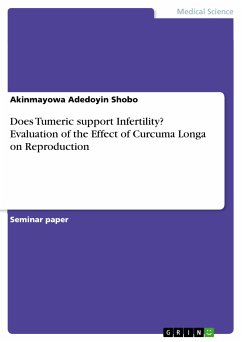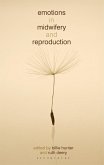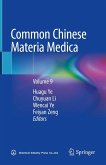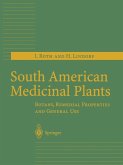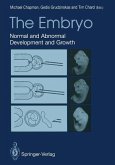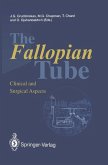Seminar paper from the year 2021 in the subject Health - Public Health, grade: B+ (70), Obafemi Awolowo University, language: English, abstract: In this discourse, the existing literature on the subjects of the pathophysiology of infertility and important findings on the use of allopathic and plant-based pharmacotherapy were evaluated. Finally, the application of the bioactive principles of turmeric and its mechanism of action in the treatment of male and female infertility were explored. Infertility from both anecdotal and empirical literature has been viewed as having a multiplicity of dimensions. With its status as a public health challenge, it has been estimated that over twenty-five percent of couples will seek help for infertility at some point during their relationship, which accounts for over 2 million office visits to health care providers annually. It is also interesting to note that infertility may have other far-reaching consequences, as it not only affects the couples' life only, but the total health care services and social environment. Various studies have linked infertility to certain emotional and social disturbances including mood disorders, criminality, and inadequacy in social interaction amongst infertile couples. From a socio-anthropological perspective, there have been discussions on the role of a number of factors on infertility. For instance; Wdowiak et al. reported a trend of lower sperm parameters (and male reproductive health) in today's men in comparison to those who lived more than fifty years ago. Additionally, the negative effect of the persistent presence of environmental toxicants such as arsenic on the reproductive system in the recent years has also been implicated on the issue of infertility.
Dieser Download kann aus rechtlichen Gründen nur mit Rechnungsadresse in A, B, BG, CY, CZ, D, DK, EW, E, FIN, F, GR, HR, H, IRL, I, LT, L, LR, M, NL, PL, P, R, S, SLO, SK ausgeliefert werden.

